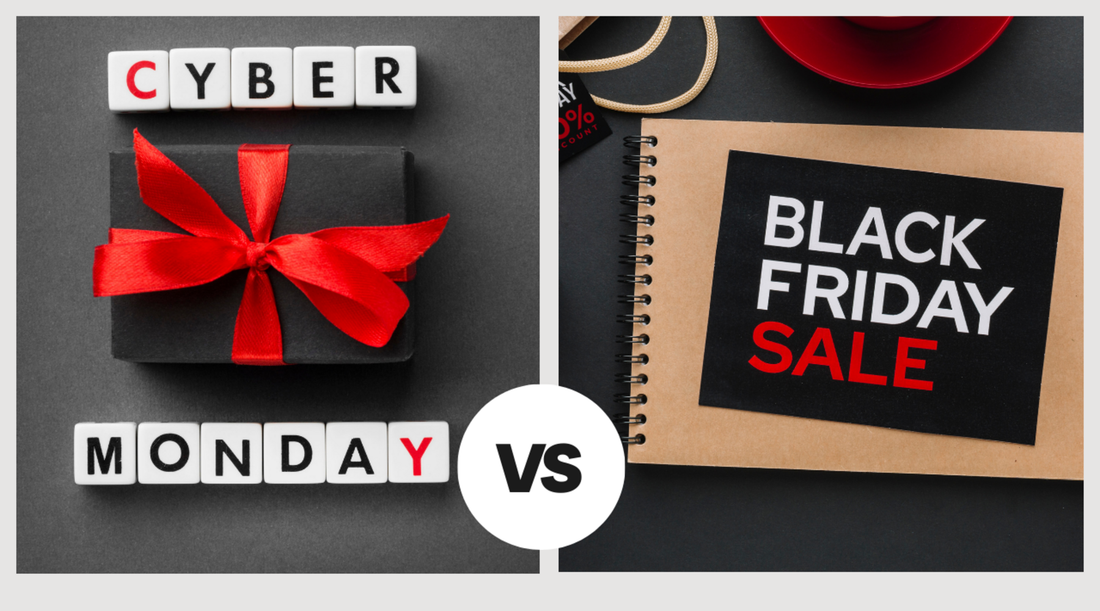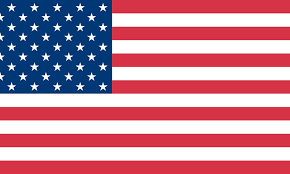Black Day VS. Cyber Monday: What’s the Key Difference?

The holiday shopping season is almost upon us, and that means two of the biggest shopping days of the year: Black Friday and Cyber Monday. Whether you are a seasoned bargain hunter or a first-time shopper, understanding the difference between these two colossal sales events can help you make the most out of your purchases. But which one is better? Is Cyber Monday better than Black Friday? No matter if you're a buyer or a seller, this article will help you prepare for these two big days.

Navigating through the sea of deals can be overwhelming, but don't worry! We're here to guide you through the key distinctions between Black Friday sales and Cyber Monday savings. From in-store exclusive offers to the convenience of online shopping, we'll break it all down for you. So, sit back, relax, and let’s explore what makes each day unique and how you can get the best bang for your buck.
6 Differences Between Black Day and Cyber Monday
Whether you prefer the excitement of in-store hunting or the comfort of online browsing, each sales day has its own set of perks and challenges. Let’s take a closer look at how they stack up against each other.
1. Black Friday offers more in-store deals
On Black Friday, traditional brick-and-mortar stores often pull out all the stops with massive doorbuster deals. You might find yourself standing in line at midnight to snag those limited-time offers. For instance, retailers like Walmart and Best Buy open their doors early to offer huge discounts on electronics, home appliances, and more. This is a great day if you love the thrill of in-person shopping and can manage the crowds.

2. Cyber Monday might come with higher shipping costs
While Cyber Monday provides the comfort of shopping from your couch, it may come with higher shipping fees. Many online retailers offset their competitive discounts with increased shipping charges. For example, free shipping thresholds may be higher on this day, especially for larger items. So, while you're scoring deals on gadgets and fashion, keep an eye on those extra shipping costs that could add up quickly.
3. Black Friday sale require more prep time
If you're gearing up for Black Friday, prepare to do more homework. Researching store ads, planning your route, and setting up camp outside your favorite stores can take significant effort. Savvy shoppers use tools like price comparison apps and printed coupons to maximize their savings. You'll need to identify which stores offer early morning doorbusters, figure out the best deals at different locations, and note opening hours to prioritize stops. Some even create detailed maps and schedules to hit all key spots before the best deals run out. The preparation during Black Friday is intense, but the rewards—like 50% off a new TV—are often worth it.
4. Cyber Monday deals may disappear faster
One of the main differences on Cyber Monday is that deals can vanish in the blink of an eye. Online retailers often have limited stock for their best deals, and once they're gone, they’re gone. Flash sales and lightning deals on sites like Amazon require quick fingers and even quicker decision-making. If you see something you want, don't hesitate because it may not be there later.
5. It’s easier to compare costs on Cyber Monday
Shopping online during Cyber Monday allows for seamless price comparisons. You can easily switch tabs between different retailers to ensure you are getting the best price. Some websites offer historical price data on Amazon products so you can tell if a deal is genuinely good. This ease of comparison shopping is a significant advantage of staying home on Cyber Monday.

In contrast, comparing prices in-store on Black Friday can be challenging. Moving from one store to another takes time, and by the time you check prices at other locations, the best deals might already be gone. Additionally, physical stores may not always provide easy access to historical pricing information, making it harder to determine whether you're truly getting a good deal.
6. Finding deals on Black Friday can be tough
Black Friday can be a battlefield. The chaos of crowded stores and limited stock can make finding the best deals challenging. Even though many retailers distribute flyers and advertise deals weeks in advance, the in-store experience can still be unpredictable. Sometimes, the item you wanted is sold out by the time you reach the shelf, leaving you empty-handed after hours of waiting.
*anchor-1
Which Day Offers Better Deals?
Deciding between Black Friday and Cyber Monday largely depends on what you are looking to buy. Are you hunting for big-ticket items like mattresses, laptops, and televisions? Then Black Friday is likely your best bet as these items often see substantial markdowns on this day. Retailers use these heavy discounts to draw people into their stores.
On the other hand, Cyber Monday can be a treasure trove for smaller items such as kitchen gadgets, clothing, accessories, and beauty products. If these are on your shopping list, then waiting for Cyber Monday can pay off. Plus, the convenience of shopping from home cannot be understated, especially if you prefer avoiding the hustle and bustle of physical stores.
Should You Simply Hold Out for Cyber Monday?
In short, no—both days offer unique opportunities for saving. Instead of choosing between them, consider what you need and plan accordingly. Some deals may even extend from Black Friday into Cyber Monday, giving you multiple chances to snag what you want. Diversify your strategy to make the most of both sales events.
How to Prepare for the Black Day or Cyber Monday?
Preparation is key to making the most out of Black Friday and Cyber Monday. Whether you’re a customer looking for the best deals or a business owner aiming to boost sales, having a game plan can spell the difference between success and missed opportunities.
For Customers
As a shopper, it's beneficial to start by researching sales information ahead of time. Many retailers release sneak peeks of their Black Friday and Cyber Monday deals weeks in advance, allowing you to plan your purchases effectively. It is suggested that you create a list of items you wish to buy and bookmarking relevant pages if you're shopping online can save time and reduce stress. Additionally, setting a budget helps prevent impulse buying and enables you to prioritize high-ticket items or hard-to-find gifts. This approach ensures a more organized and efficient shopping experience.
For Business Owners
If you run an online store, now is the time to ramp up your marketing efforts. Utilize email campaigns, social media posts, and special promotions to attract customers.
Prepare essential tools like thermal printers and shipping labels are crucial for managing increased order volumes. Companies like MUNBYN offer reliable thermal label printers and shipping labels that can streamline your shipping process.
Additionally, invest in packaging materials such as packaging bags or boxes and protective materials like bubble wrap paper or honeycomb wrapping paper to ensure your products arrive safely. If you operate a physical store, consider extending store hours and hiring additional staff to handle the surge in customers. Advertising heavily in local media and setting up attractive in-store displays can also drive traffic to your location.
Wrap Up
Both Black Friday and Cyber Monday are monumental shopping events with unique advantages and challenges. By understanding the differences, planning ahead, and preparing effectively, you can navigate these days like a pro. For retailers, these events offer unparalleled opportunities to attract customers, clear out inventory, and boost sales. So seize this opportunity and get ready for the most deals and orders!


